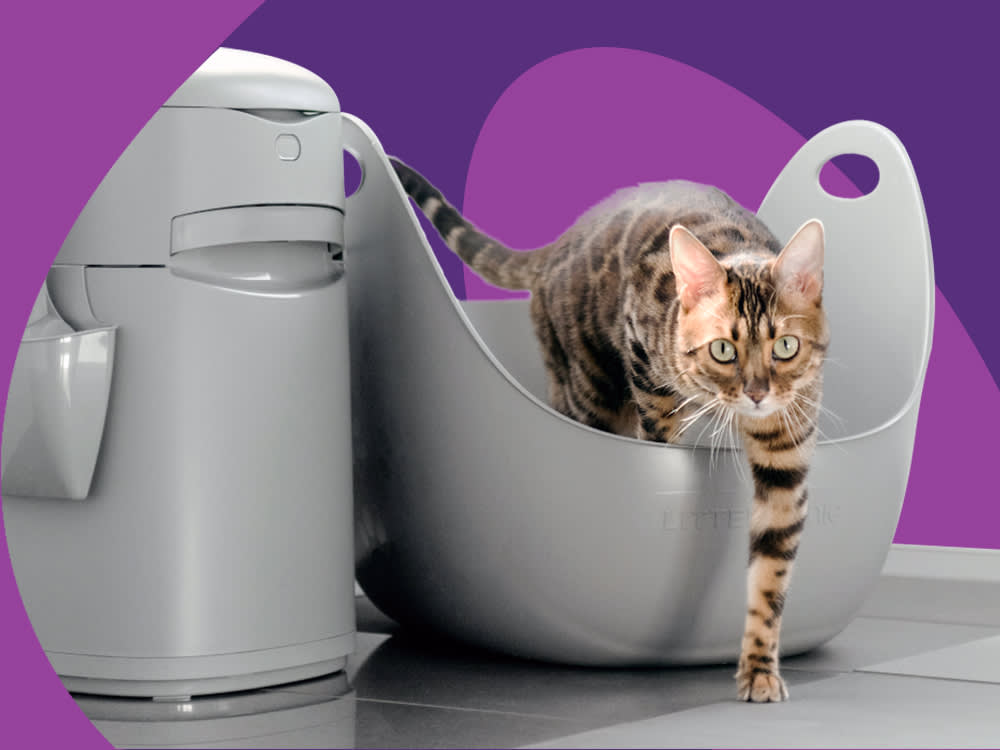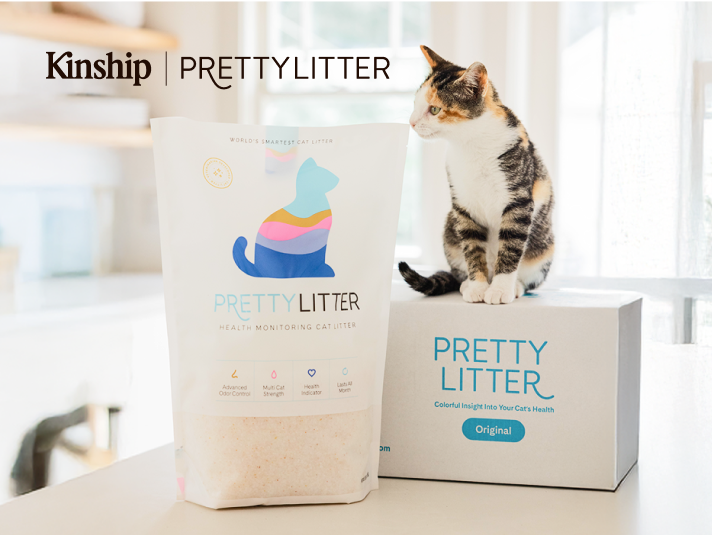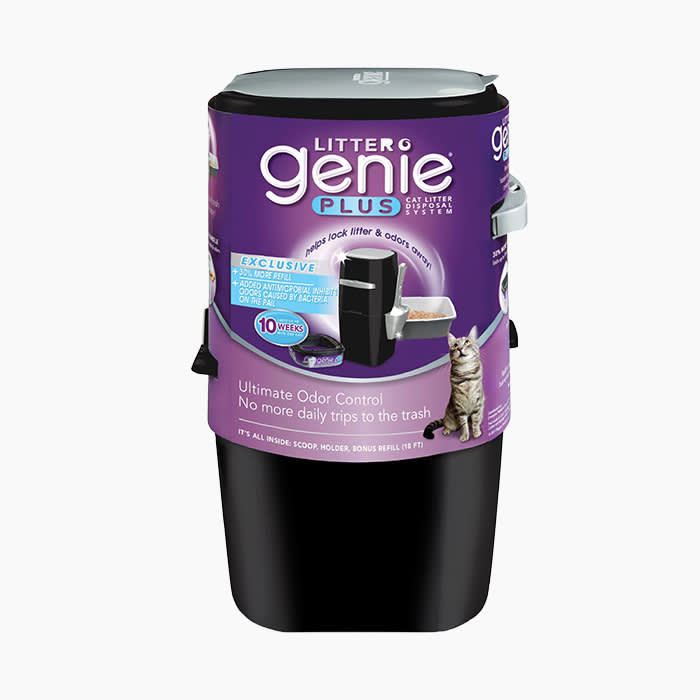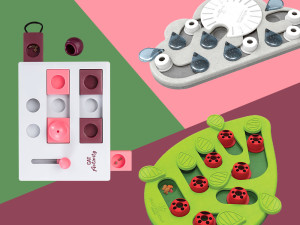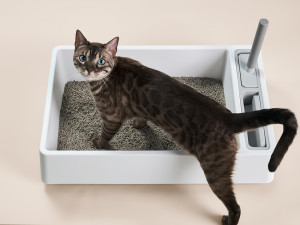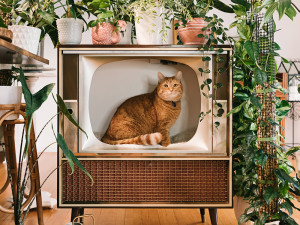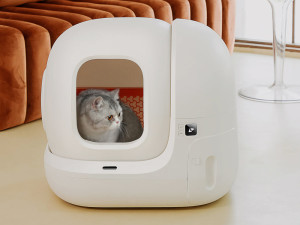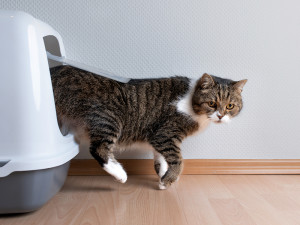How the Litter Genie Made Me a Better Cat Dad
The Litter Genie prevents daily scooping, plastic waste, and the sights (and smells) of a full litter box.
I’m a lazy human, and I don’t love scooping the cat litter: that combination makes that side of cat parenthood, well, challenging. The Litter Genieopens in new tab makes me a better cat dad, and it makes the dreadful process of scooping cat litter quicker and easier. Rather than having to bag up soiled litter each time I scoop, it’s a holding place, a poop liminal zone, making the act of cleaning quick enough that I can do it whenever I walk past, not just when it’s reached a state of emergency.
The Litter Genie may look like a standard trash can at first glance, but it’s a thoughtfully designed contraption — invented so that holding a week’s worth of waste doesn’t make your whole house smell vile. This is mostly thanks to a dual door design which functions like an airlock to make sure the unpleasant parts are never exposed to the air. You lift the lid, deposit your scoopings, and seal it up; then pull back a sliding trapdoor, so they’re all deposited into a bag in the chamber of the Litter Genie. The slide automatically closes, and your litter is tucked away until the Litter Genie’s chamber is full, so you only need to empty it all at once. Voilà! Your once daily trips to the garbage are now weekly.
Save on the litter with color-changing tech that helps you better care for your cat.
Rather than constantly swapping out individual plastic bags as they fill, the Litter Genie dispenses plastic that you can cut and tie to match your needsopens in new tab — basically a long plastic tube. You tie off the bottom in a knot, and once the chamber is full of waste, there’s an included scissor that you can use to snip off the top of the bag. Then you tie off the new bottom to form a bag and start again as you take the old one out to the trash. If you want to make your trips to the garbage even less frequent (or if you’re wrangling multiple cats) the Litter Genie XLopens in new tab has a larger chamber so it can hold more litter. And since the plastic dispenser means bags can be cut to any length, the standard refills work just fine with the larger model.
The plastic refills account for most of Litter Genie’s upkeep, as they’re replaceable. A four pack of refills generally set you back around $30opens in new tab, with each one lasting around two months with a single cat. There are also other companies making bags that are Litter Genie compatibleopens in new tab, but, like buying an off-brand printer cartridge, you can’t be sure they’ll work quite right. You can even buy a roll of third party plastic bags designed to fit the Litter Genie’s tall and skinny chamberopens in new tab if you don’t want to deal with the whole dispenser thing or an adapter to use any plastic bag of your choosingopens in new tab, assuming it’s the right size and shape.
How much do you spend on your pet per year?
The Litter Genie’s inconveniences are minor compared to usefulness. The process of taking out the bag can be a bit fiddly, as you have to open the chamber on a hinge, which inevitably ends up flopping about and not lining up quite right as you close it. And, given what it’s subjected to, it’s not a huge surprise that over time the Litter Genie gets a pretty hefty coating of litter dust and gunk. However, it’s one of the more attractive choices to store your pet’s unsightly excrements, and sure as hell beats having a full litter box. The Litter Genie even comes with a small caddy on the side for stashing your litter scooper. Plus, it’s more environmentally friendly than using plastic bags on the daily.
For around $20, the Litter Genie has made me a better caretaker of my cat, and a more frequent litter box scooper — which makes for a better smelling house and a happier cat. And what more convincing do you need than that?
